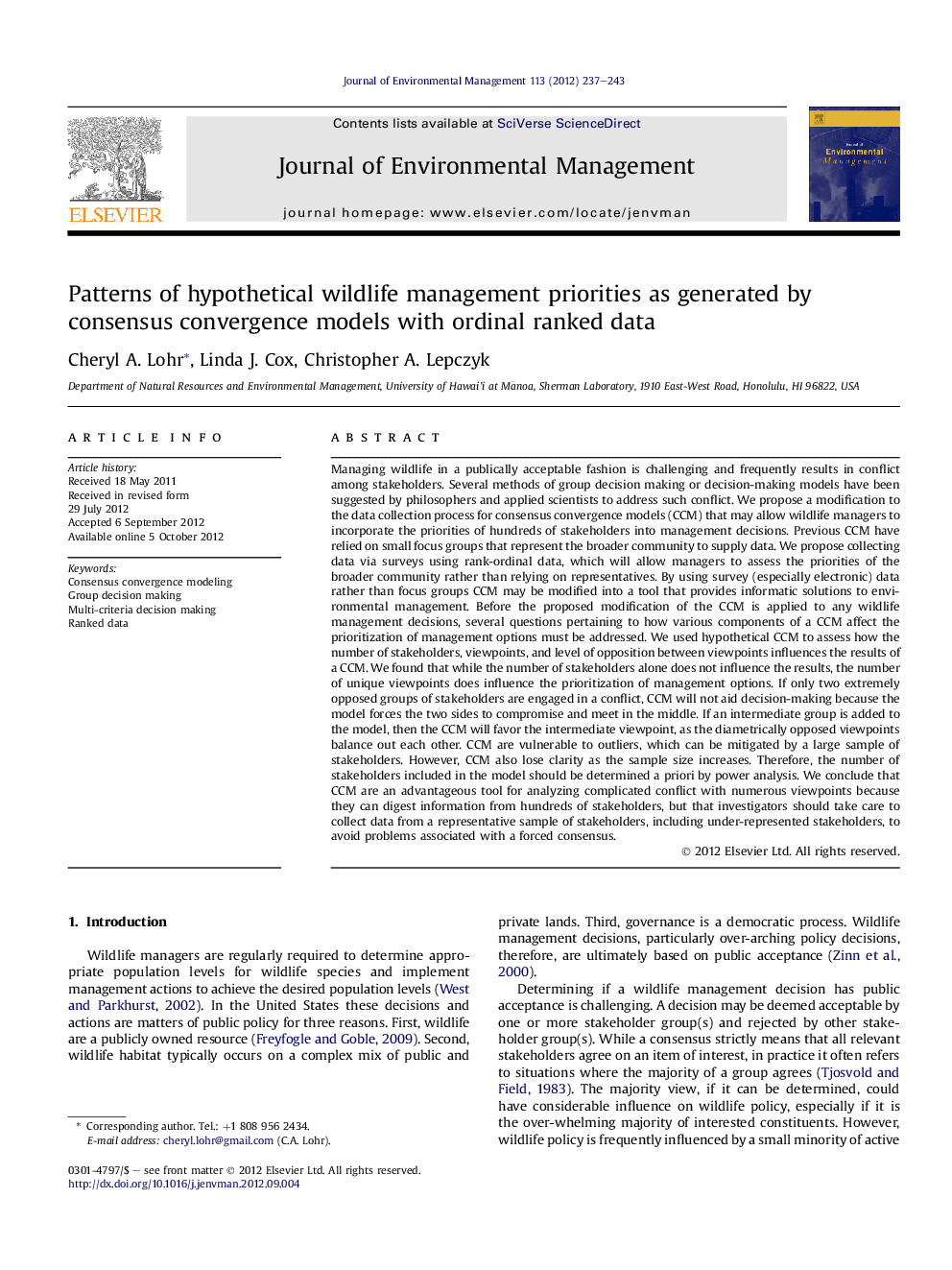| کد مقاله | کد نشریه | سال انتشار | مقاله انگلیسی | نسخه تمام متن |
|---|---|---|---|---|
| 1056704 | 1485299 | 2012 | 7 صفحه PDF | دانلود رایگان |

Managing wildlife in a publically acceptable fashion is challenging and frequently results in conflict among stakeholders. Several methods of group decision making or decision-making models have been suggested by philosophers and applied scientists to address such conflict. We propose a modification to the data collection process for consensus convergence models (CCM) that may allow wildlife managers to incorporate the priorities of hundreds of stakeholders into management decisions. Previous CCM have relied on small focus groups that represent the broader community to supply data. We propose collecting data via surveys using rank-ordinal data, which will allow managers to assess the priorities of the broader community rather than relying on representatives. By using survey (especially electronic) data rather than focus groups CCM may be modified into a tool that provides informatic solutions to environmental management. Before the proposed modification of the CCM is applied to any wildlife management decisions, several questions pertaining to how various components of a CCM affect the prioritization of management options must be addressed. We used hypothetical CCM to assess how the number of stakeholders, viewpoints, and level of opposition between viewpoints influences the results of a CCM. We found that while the number of stakeholders alone does not influence the results, the number of unique viewpoints does influence the prioritization of management options. If only two extremely opposed groups of stakeholders are engaged in a conflict, CCM will not aid decision-making because the model forces the two sides to compromise and meet in the middle. If an intermediate group is added to the model, then the CCM will favor the intermediate viewpoint, as the diametrically opposed viewpoints balance out each other. CCM are vulnerable to outliers, which can be mitigated by a large sample of stakeholders. However, CCM also lose clarity as the sample size increases. Therefore, the number of stakeholders included in the model should be determined a priori by power analysis. We conclude that CCM are an advantageous tool for analyzing complicated conflict with numerous viewpoints because they can digest information from hundreds of stakeholders, but that investigators should take care to collect data from a representative sample of stakeholders, including under-represented stakeholders, to avoid problems associated with a forced consensus.
► We outline a consensus convergence model that analyzes survey data on management priorities.
► We created hypothetical scenarios to characterize the behavior of the model.
► The number of unique viewpoints in the model will affect the results.
► The model will not aid decision-making for two diametrically opposing parties or homogenous groups.
► Small groups with extreme views have a disproportionate affect on the model results.
Journal: Journal of Environmental Management - Volume 113, 30 December 2012, Pages 237–243